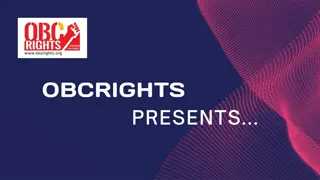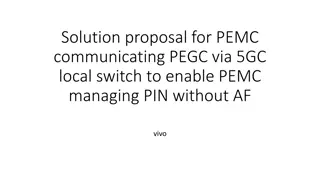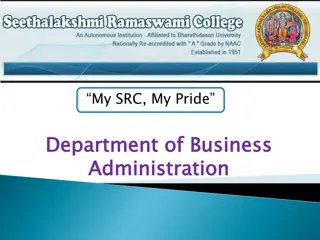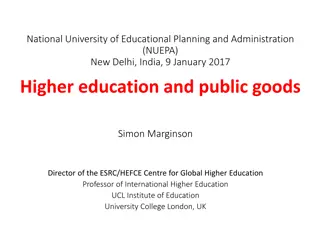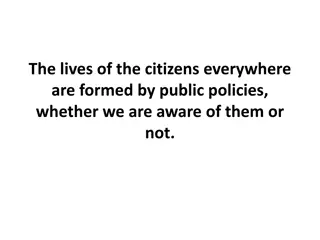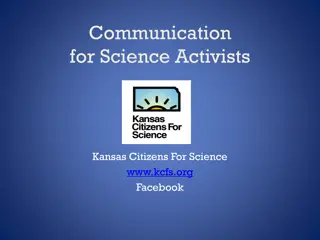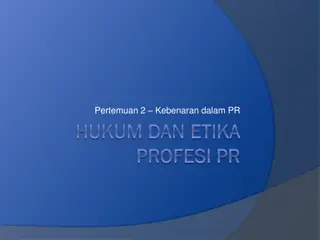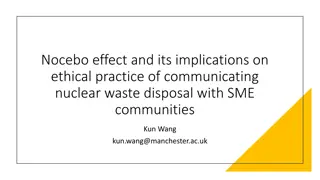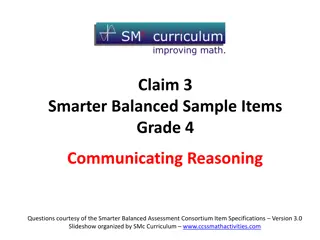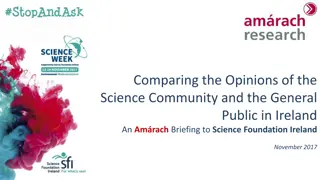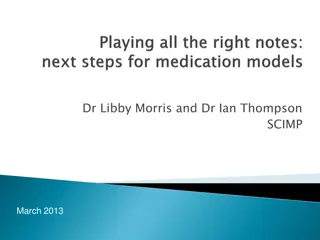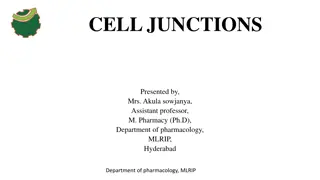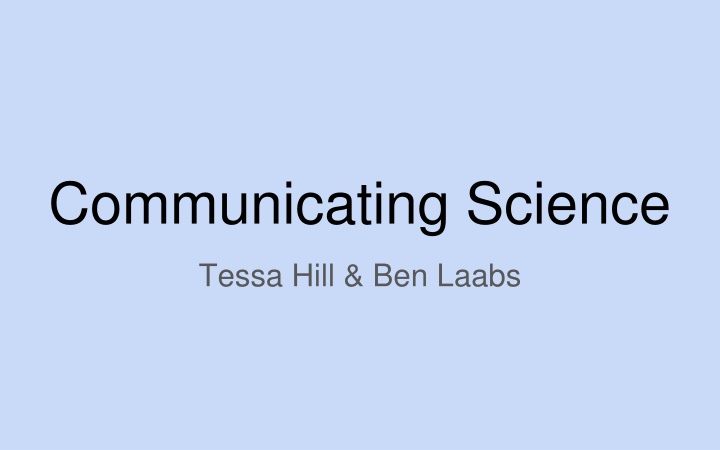
Importance of Science Communication for Effective Research
Discover the significance of science communication through expert insights and practical tips. Dive into why communication is central to scientific endeavors and learn how to effectively convey research findings to various audiences.
Uploaded on | 0 Views
Download Presentation

Please find below an Image/Link to download the presentation.
The content on the website is provided AS IS for your information and personal use only. It may not be sold, licensed, or shared on other websites without obtaining consent from the author. If you encounter any issues during the download, it is possible that the publisher has removed the file from their server.
You are allowed to download the files provided on this website for personal or commercial use, subject to the condition that they are used lawfully. All files are the property of their respective owners.
The content on the website is provided AS IS for your information and personal use only. It may not be sold, licensed, or shared on other websites without obtaining consent from the author.
E N D
Presentation Transcript
Communicating Science Tessa Hill & Ben Laabs
For science to work, communication is essential -Rush Holt, Former AAAS CEO Use soft words and hard arguments - English Proverb
Why is science communication important to you?
There are many ways that we use communication as scientists what does science communication mean to you?
Communication is not an add on - it is central to your enterprise as scientists - Nancy Baron, Leaving the Ivory Tower
A first step: Getting better at what we SAY Policymakers Managers Stakeholders Convey the so what about your science to Your message Other scientists Journalists Community members Public(s)
A first step: Getting better at what we SAY As scientists, we are trained to talk about Materials, methods, statistics, setting The so what is buried somewhere in here Research results Take home message Journalists are trained to report on the big take home message first, then the details
A first step: Getting better at what we SAY First, fill out your message box based upon a story you could talk to the media about (10 minutes) Then we ll work in partners (10 minutes) Second step: Honing our LISTENING skills
Other ways that you/ your students might use the Message Box technique? Preparing for conferences Planning out an outline for a paper Planning key points for a meeting/committee to discuss Student presentations in class
Science & Engineering Indicators surveys (NSB) Scientists enjoy a great deal of trust and confidence from the public Ranked 2nd to Military for institutional leaders Ranked 2nd to Firefighters in people who are trustworthy
Psychology of Science Communication Research by E. Markowitz,M. Nisbet & Yale Climate Change: Put people first Consider moral foundations and human values as an access point linking climate change mitigation and adaptation efforts to positive emotions such as hope, pride and gratitude may allow individuals to circumvent the need for defensiveness, leaving them willing and able to engage more actively Markowitz 2012
Yale Program on Climate Communication: 5 Key Psychological Insights
Plan ahead for opportunities to engage Are there papers, projects, conferences or other events that will provide you an opportunity to speak to the media, give a public talk, or brief policymakers? What are the pros/cons of these engagement opportunities? What do you worry about? Will you get credit from your university for spending time on these events? Are there examples to look at of people who have excelled at communicating science in your field what can you learn from them?
Resources we recommend Escape from the Ivory Tower, Nancy Baron Message Box Workbook, COMPASS SciComm trainings by COMPASS, AGU, AAAS, Alan Alda / Kavli
For climate change, the Six Americas: Yale Program on Climate Change Where is your time best spent? Where do you target your engagement?
Checklist for an interview Message box Ask questions - when is the deadline, who is the audience, what is the format? Get out your research paper, figures, reports Compile a list of other recommended sources for the journalist Anticipate the hard questions and prepare an answer Practice your bridging techniques


